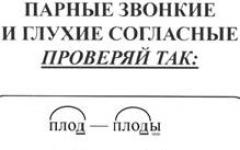Disjunctive genitive (partitativerGenitiv) used when there is a need to highlight someone or something from a group. This is a construction consisting of an indefinite pronoun ( einer, eine, eines one; etliche, manche some; viele many, wenige few, alle, sä mtliche All), negative pronoun keener, keine, keinesno one, not one; demonstrative pronoun, z. B.: jeder, jede, jedes every or numeral, etc. in conjunction with a plural noun in the genitive, i.e. with article der or another word that replaces it. A noun can be preceded by an adjective, most often in the superlative degree. Translation of a noun into Russian is carried out with a preposition with the preposition “ from», z. B.: jede r der Studenten – one of the students, jed eder Frauen – each of the women, das schnellst e der Autos – the fastestfrom cars.
Übungen
|
Einer meiner langjährigen Verkaufer hat einmal das Geheimnis seines Erfolges entschleiert: Man muss den Kunden reden lassen und ein guter Zuhörer sein. Wilhelm Becker, dt. Unternehmer |
Übung 1. Übersetzen Sie diese Wortgruppen ins Russische.
1) jede der Fragen; 2) keiner der Vorschläge; 3) viele der Reifen; 4) eines der Beispiele; 5) manche der Scheinwerfer; 6) einer der Computer; 7) einige der Kolben; 8) sämtliche von Reparaturen; 9) eines der Pferde.
Übung 2. Übersetzen Sie die Sätze ins Russische.
1. Carl Gaus war einer der bedeutendsten Mathematicer seiner Zeit. 2. Marie Curie war eine der ersten promovierten Physikerinnen. 3. Werner von Siemens, einer der größten Erfinder des 19. Jahrhunderts, gründete das Deutsche Museum in München. 4. Alexander von Humboldt war einer der Gründer der Berliner Universität. 5. Glas ist einer der ältesten Werkstoffe. 7. Die Wärme ist eine der wichtigsten Energiequellen.
Übung 3. Übersetzen Sie die Sätze ins Deutsche.
1. None of these books were interesting. 2. We have already built some of these buildings. 3. Bamberg is one of the most beautiful cities in Bavaria. 4. Many of my friends graduated from university. 5. Dresden Art Gallery is one of the most famous museums in the world. 6. The airport in Hannover is one of the largest in Germany. 7. Unfortunately, I devoted little time to one of the most difficult topics in grammar.
Bungen zur wiederholung
Übung 1. Beantworten Sie bitte die Fragen.
1. Was beobachtet der Astronom? (der Planet) 2. Wen untersucht der Arzt? (der Patient) 3. Wem begegnete er im Verlag? (der Journalist) 4. Wen brauchen wir? (der Zeuge) 5. Wem glaubt die Bevökerung nicht? (der Kandidat) 6. Wem verlieh man den ersten Preis? (der Regissieur) 7. Was repariert der Mechaniker? (der Apparat) 8. Was gibt es in der Vorhalle? (der Kaffeeautomat). 9. Wen bewundern alle? (der Held) 10. Wem bist du gestern begegnet? (der Kollege)
Übung 2. Übersetzen Sie bitte die Sätze. Beachten Sie bitte die Deklination der Substantive und den Gebrauch des Artikels.
1. One of the professor’s lectures will not take place today. 2. We need to support this candidate. 3. Call one of your colleagues! 4. We listened to the report of a graduate student. 5. Everyone approved the architect's project. 6. You need to ask the witness. 7. Please repeat this paragraph. 8. An astronomer observes the movement of a comet. 9. The seller shows the buyer a new product. 10. Explain this clause of the contract to the client. 11. This machine was repaired last week. 12. We have already told the correspondent this news. 13. The teacher did not notice the student’s mistake. 14. Follow this person! 15. These are the signatures of the president and secretary of the company. 16. The help of a witness made our task easier. 17. I must show my colleague the report of the lawyer of our company.
Übung 8. Übersetzen Sie bitte folgende Sätze:
1. I would like to show you one of his works. 2. Let's buy one of these dictionaries. 3. I can only answer one of your questions. 4. One of the theaters is currently under renovation. 5. This director plays the main role in one of his films. 6. He emphasized this in one of his interviews. 7. One of these girls and I were together in a sanatorium. 8. Give me at least one reason. 9. Soon one of these enterprises will be closed. 10. He owns one of these stores.
How often have you promised yourself to start doing something next Monday, next month... next year? But then either they didn’t even try to get down to business, or they soon abandoned everything. Same with studying. foreign language: at first we are full of enthusiasm, and then the first difficulties begin to arise - and we begin to look for an excuse for ourselves not to do anything.
And if English language many learned with grief in half, then the cases in German scare away almost everyone at the very beginning of studying. However, if you think about it, everything is not so scary at all. After all, our native language is Russian. And it has as many as six cases and three genders singular. Besides, forget about her. And in German everything is the same, but there are only four cases, how can you not cope? So let's start figuring it out right now.
Unlike Russian, cases in German are expressed using articles, and not As for adjectives and pronouns, their endings are consistent across cases, but priority in their expression is still given to articles. The endings rather reflect the noun being defined. So, there are the following cases of the German language:

As mentioned above, cases in German are expressed through articles, so for ease of understanding I offer you a table with the change of articles by case.
* - the ending -s is also added to the noun;
** - the ending -n is added to the noun.
Now that we have dealt with the basic questions regarding how cases are used in the German language, it’s time to get down to the most interesting part - prepositions. After all, they are often the ones who influence the use of one case or another. And they are not difficult to learn!

As you can see, cases in German can still be studied, and their use is even more logical than in Russian. So go for it - and remember that everything here depends only on you.
When studying cases (pad.) in German, the Genitive is often not given due attention, since in modern spoken language it is used quite rarely; its replacement with the Dative case is very common, as Bastian Sick wrote in detail in his book (Bastian Sick. Der Dativ ist dem Genitiv sein Tod). At the same time, it would be a big mistake not to study it at all, citing the possibility of replacing it with constructions with the Dative case, since in writing it is used quite actively, and if you strive to speak correctly, in a literary language, you need to know it.
Since cases in German are expressed using articles, let us recall their forms in the Genitive case.
Indefinite articles:
| m.r. | w.r. | s.r. | |
| Nominative | ein | eine | ein |
| Genitiv | eines | einer | eines |
Definite articles:
| m.r. | w.r. | s.r. | plural | |
| Nominative | der | die | das | die |
| Genitiv | des | der | des | der |
The most common use of the Genitive. in German, as in Russian, in constructions noun (noun) + noun (usually with the meaning of belonging): das Auto meines Mannes (my husband’s car), der Mann meiner Tochter (my daughter’s husband), die Kleider des Kindes (child's clothes), das Haus meiner Eltern (my parents' house). Such nouns answer the question whose? whose? whose? whose? (wessen?). In colloquial everyday speech they can be replaced with von + Dativ constructions: das Auto von meinem Mann, der Mann von meiner Tochter, etc. This can be heard especially often in the south of Germany.
Strictly speaking, noun phrases are not always + noun denote belonging, they can also have other meanings: die Arbeit der Lehrerin (teacher’s work), Hilfe des älteren Bruders (elder brother’s help) - the source of action, die Untersuchung des Patienten (patient examination), die Renovierung der Wohnung (apartment renovation) - object of action, der Wagon zweiter Klasse (second class carriage), Speisen der besten Qualität (high quality kitchen) – property, quality of an object, etc. The most important thing is to remember that the second noun. stands, as a rule, in the Genitive.
ATTENTION! Despite the fact that the structures are noun. + noun in Russian and German they are used according to general principle, there are some differences. So, we say a glass of wine (what? - R.p.), a cup of tea (R.p.), a liter of beer (R.p.). The Germans in such cases use 2 Nominative cases: ein Glas Wein, eine Tasse Tee, ein Liter Bier.
When using Genitiv (Genitive) in German, you need to be very careful when forming the masculine and neuter forms: they usually take on the endings –s (-es), as you may have already noticed in the examples above: Geburtstag meines Vater s(my father's birthday), das Handy ihres Freunde s(her friend's mobile phone), das Zimmer ihres Kinde s(their child's room), die Puppe des Mädchen s(girl doll).
The ending –es is added to:
- monosyllabic nouns: das Kind – des Kindes, das Bild – des Bildes, der Sohn – des Sohnes, der Tag – des Tages, etc.
- nouns ending in ss, - ß, - tz, - x and - z: der Bus- des Buses, der Fluss - des Flusses, der Arzt - des Arztes, der Komplex - des Komplexes, der Platz - des Platzes. ATTENTION! At noun. with the ending –nis the s is doubled: das Ergebnis – des Ergebnisses, das Verständnis – des Verständnisses, das Zeugnis – des Zeugnisses, etc.
- noun with stress on the last syllable: der Erfolg –des Erfolges, etc.
In other cases, as a rule, the ending -s is used, but do not forget about the weak declension of nouns (n-Deklination) - nouns of this declension acquire the ending -en (as in all other pads): der Mensch – des Menschen, der Russe - des Russen, der Hase - des Hasen, etc.
Proper names also acquire the ending –s, regardless of gender, but the noun is in the Genitive. precedes the noun in the Nominative:
Das ist Manuelas Fahrrad. - This is Manuela's bike.
Peters Auto ist kaputt. – Peter’s car broke down.
Ich habe FrauReiners Pass gefunden. – I found Frau Rainer’s passport.
If a proper name ends in s, - tz, - x or z, then the letter is Genitive. denoted by an apostrophe:
Max' Heft liegt auf dem Tisch. – Max’s notebook is on the table.
Hans' Mutter kommt nächste Woche. – Hans’s mother will arrive next week.
Fritz' Kinder spielen mit meinen zusammen. – Fritz’s children play with mine.
There is also an obsolete form Fritzens, Hansens, but it is rarely used. IN oral speech the use of such phrases is undesirable; it is more advisable to replace them with constructions with the preposition von + Dativ: das Heft von Max, die Mutter von Hans, die Kinder von Fritz...
In addition, this form is preferable when using plural nouns. Since in the plural the word itself does not acquire any ending, the case meaning is expressed only by the article. There are no problems when using nouns with the definite article: die Sachen der Kinder (the things of (these) children), die Kleider der Frauen (the dresses of (these) women), die Werke der Kü nstler (the works of (these) artists). But such phrases are correct and possible when talking about specific children, women and artists. If we speak in general, without referring to specific people or objects, then we cannot use the definite article; In such cases, the Dative case also does not help. with the preposition von: Sachen von Kindern, Kleider von Frauen, Werke von Künstlern .
If the word is accompanied by an adjective or pronoun, then they express the Genitive. with their endings: Sachen kleiner Kinder (things of small children), die Kleider junger Frauen (dresses of young women), die Werke berühmterKünstler (works of famous artists).
Genitiv (Genitive case) in German is used not only in the phrases described above, there are a number of verbs and adjectives that require this case form after themselves.
So, for example, the verbs bedürfen (need, demand), harren (wait impatiently), gedenken (remember, remember), bezichtigen (accuse, incriminate), beschuldigen (accuse), verweisen (send, expel), würdigen (accuse), sich rühmen (boast), sich erfreuen (take advantage of), sich entledigen (get rid of), sich befleißigen (try, strive), sich bedienen (take advantage), sich erbarmen (take pity), sich schämen (be ashamed), sich annehmen (take care, to look after), sich versichern (to provide for oneself, to secure) require an object in the Genitive.
Er rühmt sich seines Sieges im Boxkampf. – He brags about his victory in a boxing match.
Leider erfreue ich mich keiner besten Gesundheit. – Unfortunately, I am not in good health.
Ich muss mich erst seiner Hilfe versichern. “I need to get his support first.”
Der Berühmte russische Schriftsteller A. Solschenizyn wurde der USSR verwiesen. – The famous Russian writer A. Solzhenitsyn was expelled from the USSR.
Some adjectives are also used with an object in the Genitive case, for example: unkundig (not knowledgeable, not in the know), verdächtig (suspected, suspected), bewusst (aware, aware) mächtig (possessing), (un)würdig ((not )worthy), überdrüssig (to bother).
Er ist des Lebens ganz unkundig. “He doesn’t know life at all.”
Fast jeder Schüler ist der Schule zum Schulabschluss total überdrüssig. – Almost every student gets bored with school by the end of it.
Er war der Börsenmachenschaften verdächtig, seine Schuld aber wurde nicht bewiesen. – He was suspected of stock exchange fraud, but his guilt was not proven.
However, the above verbs and adjectives appear with the Genitive. in writing, usually in a high (upbeat or solemn) style and are considered obsolete forms. In everyday speech they can be used with various prepositions (their meaning does not change).
Considering the Genitiv (Genitive case) in the German language, it is necessary to dwell on a whole group of prepositions that also require the Genitive case after themselves. This group is very numerous: abseits (aside from), anhand (with help), angesichts (in view of), anlässlich (on occasion, about), anstatt (instead of, in return), anstelle (instead of), aufgrund (due to, for a reason), außerhalb (outside, for), binnen (during, throughout), diesseits (on this side), gemäß (according to, in accordance with), halber (for the sake of, for, in view of), hinsichtlich (in relation to, regarding ), infolge (due to), inmitten (in the middle), innerhalb (inside, in), jenseits (on the other side), kraft (due to, based on), längs (along), laut (according to), mangels (for lack, for lack), mittels (through, with help), oberhalb (above, above), statt (instead of, in return), trotz (despite), um ... Willen (for the sake of, in the name of), ungeachtet (despite), unterhalb (under, below), unweit (not far from), vermittels (through, by), während (during), wegen (due to), zeit (throughout, during), zwecks (with the aim of, in order to so) and some others.
Aufgrund seines nachgewiesenen Alibis wurde der Verdächtige freigesprochen. – Due to a proven alibi, the suspect was released.
Ungeachtet vieler Streike hat die Unternehmensleitung über 100 Arbeitnehmer entlassen. – Despite many strikes, the company’s management fired more than 100 employees.
Der Chef hielt lange feierliche Rede anlässlich des Jubiläums unserer Firma. – The boss gave a long solemn speech on the occasion of the anniversary of our company.
Statt des Straftäters hat die Polizei das Opfer festgenommen. – Instead of the criminal, the police detained the victim.
The whole difficulty when using many prepositions from this list (for example, wegen, gemäß, laut, infolge, mittels, binnen, trotz) lies in the fact that colloquial speech they can be used with the dative case. But strict standards literary language They still require the Genitive case, so if you want to express yourself correctly, you still have to master Genitiv. BUT! There is one more feature: when using these prepositions with nouns without an article or an adjective (or pronoun) in the plural (i.e. when there is no clear marker of the Genitive case), the norms of the literary language recommend using the Dative case. (in such constructions the preposition von may appear):
Mangels der überzeugenden Beweise (G.) musste die Polizei das Verfahren gegen ihn einstellen. “Due to a lack of convincing evidence, the police had to stop the investigation against him.
Mangels Beweisen (D.) musste die Polizei das Verfahren gegen ihn einstellen. – Due to lack of evidence, the police had to stop the investigation against him.
Angesichts der neuen Tatsachen forderte der Anwalt eine weitere Ermittlung. – Due to new circumstances, the lawyer requested an additional investigation.
Angesichts von 2 Millionen Arbeitslosen musste sich die Regierung um neue Arbeitsplätze kümmern. – In view of 2 million unemployed, the government had to take care of new jobs.
You can find many such examples, so when using these prepositions, do not be lazy to look in the dictionary once again to make sure that you have constructed the sentence correctly.
Genitiv ( Genitive) answers the questions "whose?" "Wessen?" , is used independently, and is also required after some prepositions: unweit, während, wegen, statt, längs, trotz.
Das ist die Tasche meiner Mutter.
In der Garage steht der BMW des Vaters, der Polo der Tochter steht draußen.
Während des Seminars haben sich die Studenten besser kennen gelernt.
Trotz des schlechten Wetters haben wir auf dem Feld weitergearbeitet.
| m | f | n | pl |
| der Wind | die Warnung | das Wetter | die Unruhen |
| trotz des Windes | trotz der Warnung | trotz des Wetters | Trotz der Unruhen |
| dessen | deren | dessen | deren |
Das ist der Bauer, Dessen Produktion bundesweit verkauft wird.
This is a farmer's produce whom sold throughout the Federal Republic.
Ich habe ein Autogramm von der Buchautorin, deren Romane weltweit beruhmt sind.
I received the author's autograph, novels which known all over the world.
Da liegt das Kind, dessen Eltern es verlassen haben.
There lies a child, parents whom he was abandoned.
Wir laden Studenten ein, deren Prüfungsergebnisse am besten waren.
We invite students, exam results which were the best.
Exercises / ÜBUNGEN
1. Answer yes to the questions.
1. Überstreicht eine Windkraftanlage während einer Drehung eine Fläche gleich in etwa einem halben Fußballfeld ?
2. Benutzt man zur Zeit zunehmend erneuerbare Energien statt der traditionellen?
3. Ist es möglich durch die Windenergie während eines Jahres so viel Energie zu produzieren, wie bei der Produktion und dem Aufbau der Windkraftanlage verbraucht wurde?
4. Ist es wahr, dass man Autos statt Benzin mit Biogas tanken kann, der aus Abfällen der Tierhaltung, der sogenannten Biomasse gewonnen wird?
5. Kann Wasser als Quelle der Energie dienen?
2. Insert suitable nouns with definite articles.
1. Wir hören mit den Feldarbeiten wegen … … auf.
2. Darf man trotz … … im Wald spazieren?
3. Während… …hat es viel geschneit.
4. Unweit … … befindet sich eine Weide.
5. Statt……hat sie einen Regenmantel mitgenommen.
6. Längs… …hat sie wunderschöne Rosensträucher gepflanzt.
3. Translate the following sentences, paying attention to the use of relative pronouns in the genitive case.
1. Tomorrow we are going to a seminar, the participants of which are only students.
2. I met a doctor whose research I had only read about in books.
3. There is a lot in Germany windmills, the power of which can provide energy to entire villages.
4. This is biogas, the production of which is similar to the work of a cow’s stomach.
5. My uncle built a biogas production device, the purpose of which is to provide the houses of our village with energy.
In general, the difficult-to-learn German language has quite a lot common features with Russian language. In particular, these are cases. And today we will talk about them in detail.
For people for whom Russian is their native language, it will not be difficult to master cases in the German language, because they correspond to Russian. And one more nice bonus - German cases only four: nominative (Nominativ), genitive (Genitiv), dative (Dativ) and accusative (Akkusativ). In addition, Genitiv is rarely used, mainly in academic speech and books.
The general rule for declension of German cases is that a noun does not change its endings (with the exception of the genitive case and the plural of the dative case), and only articles and endings of accompanying adjectives, pronouns and numerals are declined by case. Let's look at each case in detail.
Der Nominativ or Der Werfall
Der Nominativ, as in the Russian language, the nominative case, answers the questions who? What? (wer? was?), and denotes the subject of a sentence or the nominal part of the predicate. The nominative case will also contain accompanying parts of speech.
The declension of articles of adjectives, pronouns and numerals in Der Nominativ is indicated in the table.
Table Declension of articles and nominative endings
| Singular | Plural | |||
| Masculine | Feminine | Neuter gender | ||
| Definite article | der | die | das | die |
| -e | -e | -e | -en | |
| Indefinite article | ein | eine | ein | keine |
| -er | -e | -es | -en | |
Let's look at examples:
- Der Hund beißt den Mann. A dog bites a man. - (Who?) dog. “Dog” is the nominative case, as indicated by the article Der.
- Dieser Gedanke ist blöd. This idea is stupid. - (What?) thought. The word “thought” is a masculine noun in the nominative case - the ending does not change. “This” is an accompanying pronoun in the nominative case, as indicated by the ending -er.
- Das graue Haus ist rechts. The gray house is on the right. - (What?) house. “House” Das Haus is a noun in the nominative case, which indicates definite article Das and the accompanying adjective graue ending in -e.
Der Dativ or Der Wemfall
The dative case acts in a sentence as an indirect object or circumstance and answers the questions to whom? what? where? Where? (wem? woher? wo?)
An indirect or indirect object is the object towards which the action is directed, which occurs in a sentence. This is usually a person, although this is not necessary. If you ask yourself: “To whom or for whom is this being done?”, the answer will be an indirect object, and to say this in German they use the dative case.
Some verbs, such as helfen - to help, danken - to thank, gefallen - to like, gehören - to belong, passen - to approach, will almost always have an indirect object, so they require the dative case.
The prepositions used with the dative case are aus “from”, bei “at”, mit “with”, außer “except” nach “after”, zu “to”, von “from”, and others.
Table Declension of articles and dative endings
| Singular | Plural | |||
| Masculine | Feminine | Neuter gender | ||
| Definite article | der | die | das | die |
| The ending of the accompanying parts of speech of the definite article | -e | -e | -e | -en |
| Indefinite article | ein | eine | ein | keine |
| The ending of the accompanying parts of speech of the indefinite article | -er | -e | -es | -en |
It is also worth noting that the ending –n is added to plural nouns in Der Dativ. Let's look at examples of using the dative case.
- Der Polizist gibt dem Fahrer einen Strafzettel. - The policeman gives to the driver ticket. (To whom?) the driver. Driver in dative case, article dem.
- Er ist in der Schule- He At school. (Where?) at school.
- Den Touristen zeigt er die Kirche.- He shows the church to tourists. (To whom?) tourists, dative plural therefore article Den, ending - -en.
- Wir Danken Ihnen, Herr Stein. We thank (who?) you, Mr. Stein. There is a dative verb here thank.
- Sind diese Blumen von Ihnen? Are these flowers from you? In this sentence, the dative case is indicated by the preposition von(from).
Der Akkusativ or Der Wenfall
The accusative case answers the questions of whom? What? Where? (wen? was? wohin?) and appears in a sentence either as direct objects or indirect additions or circumstances.
Articles in accusative case almost the same as in the nominative, with the exception of the masculine gender, which also applies to the endings of accompanying words.
Let's celebrate! The accusative case can also be determined by prepositions. Prepositions such as bis "before", durch "through", für "for", gegen "against", ohne "without", um "about" always require Der Akkusativ.
Table Declension of articles and accusative endings
| Singular | Plural | |||
| Masculine | Feminine | Neuter gender | ||
| Definite article | den | die | das | die |
| The ending of the accompanying parts of speech of the definite article | -en | -e | -e | -en |
| Indefinite article | einen | eine | ein | keine |
| The ending of the accompanying parts of speech of the indefinite article | -er | -e | -es | -en |
Let's look at examples:
- Der Hund beißt den Mann.- The dog bites (who?) man.
- Ich kaufe den blauen Wagen. - I'm buying a blue (what?) car. The car - masculine, accusative case article den accompanying adjective ending -en.
- Er geht in die Schule- He is going to school. (Where?) to school.
Der Genitiv or Der Wesfall
The genitive case answers the question - whose? (wessen?) and indicates that something or someone belongs to someone or something.
Masculine and neuter nouns in Der Genitiv have an additional ending: -es or -s, which is a sign of strong declension.
Examples of using Der Genitiv:
- Das ist der Hut meines Vaters. - This is my father's hat.
- die Bluse des Mädchens- girl’s blouse (whose?)
- der Titel des Filmes/Films- the name (whose?) of the film.
The genitive case is rarely used in living language; it is replaced by the dative case.
The phrases that are familiar to us in Russian in the genitive case in German will either be in the dative case or a compound will be used.
We figured out what German prepositions they are, and the following questions will help you determine which case to use:
- Is the expression fixed? For example, Mir ist kalt (I'm cold), or Es tut mir Leid (I'm sorry)
- Do you use a case that requires an accusative or a dative preposition? When you memorize accusative and dative prepositions, they will become a good hint for you when declension of words.
- Is the verb a dative verb? If so, the object will be in the dative.
- If none of the above conditions apply, you should determine which noun in the sentence is the subject and put it in the nominative case. Then find the direct object (which you put in the accusative case) and the indirect object (in the dative case). Not all sentences have a direct object and an indirect object: some have only one or the other, or none at all.
Let's celebrate! Cases in German are an important grammatical topic, but quite easy to understand due to their similarities with Russian. The main difficulty is to learn how articles are declined and the endings of accompanying words change. But nothing is difficult if you study hard.









